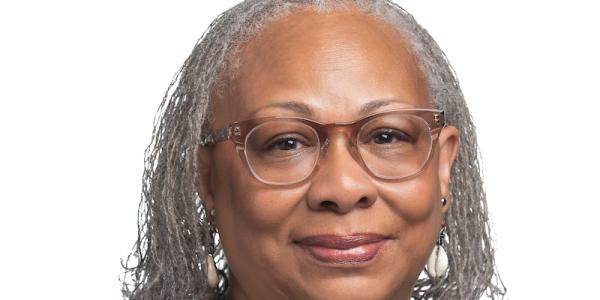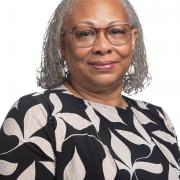From Our President. “It’s Not What They Call You, But What You Answer To...”

You are here
This is a phrase I have heard all of my life. It is attributed to WC Fields and even Tyler Perry’s Madea. But I heard it most often from civil rights leaders (Ralph Abernathy) and other African American leaders (Maya Angelou), especially as it relates to the derogatory names Black people have been called.
This phrase also exemplifies the tension in our field regarding how we are identified and how we identify ourselves. I have wrestled with this tension in the past, sometimes depending on who I was in conversation with or the context I was in, but many occurred within an educational setting. However, I have resolved this for myself and have decided that it does both matter “what they call you” and “what you answer to.”
Growing up, I heard a version of this phrase from my mother when I was in elementary school and my classmates relentlessly teased me. During my early childhood years, I was a very thin child, who wore glasses and was a smart student. My family had moved to Milwaukee, Wisconsin, from Allensville, Kentucky, and I had a definite drawl. All these factors caused me to go through some terrible name-calling and teasing (bullying?). When I shared these experiences with my mother, inevitably she told me to not retaliate, to find an adult, and to let them know what was happening. She would say, “Ann, words can’t hurt you.” But their words did hurt, they were humiliating, and they did matter.
Along my career journey, I became the director of a campus-based child care program at Milwaukee Area Technical College (MATC). On my first day of work at the MATC program, the staff had positioned a welcome banner across the top of the door at the entry to the center. The banner read, “Welcome Miss Ann.” I was pleased with this sign of promising relationships to come. However, later that morning when I thanked the staff for the sign, I also quietly let them know that the term “Miss Ann” was a bit offensive to me. It was the term that enslaved people called other enslaved people who were perceived as being better than the others. It is part of the old house-slave/field-slave tension. While I suspect that some of the staff knew this bit of history, I remember the look of shock on the face of one staff member in particular as she apologized. What I was called and what I responded to . . . those words mattered.
Later that same day, this issue was still on the minds of some of the teachers, and they asked what the children would call me. I answered, “They can call me ‘Ann’ or ‘Ms. Terrell,’ whichever they are developmentally able to articulate.” Some of the teaching staff strongly objected to this, indicating that the children would not respect me if I allowed them to call me by my first name. I responded that it was not what they called me that would determine the respect I received; it was the relationship I fostered with them. The absence of “Miss” would have no impact. What I was called and those words didn’t matter.
Those of us who work in the early childhood field understand the power and nuance of words. We have been called glorified babysitters, day care workers, and other such demeaning titles. The places in which we work are referred to as day care centers. This for me creates a public perception that what occurs during the child care day could be akin to what happens in a doggy day care: that we just “play with kids” and “feed them graham crackers.” Indeed, here in Wisconsin one of the COVID-19 vaccination campaign ads proclaimed, “Educators and child care workers are now eligible for COVID-19 vaccines.” I was taken aback by the wording in this ad and wondered who advised on its production. The wording should have been something more accurate, like “educators, including child care teachers, are now eligible for COVID-19 vaccines.”
It actually does matter what they call us and what we answer to because it is both about how we are seen and how we see ourselves. Words indicate respect, and they affect the funding for our field.
In the draft Power to the Profession documentation and now as part of the Unifying Framework for the Early Childhood Education Profession, the recommendation is that those of us who work in the early childhood education profession be in three distinct and meaningful designations (Early Childhood Educator I, II, and III) and that all early childhood educators hold a license to practice. It ends, in part, with these words:
The Unifying Framework, by establishing clarity about who early childhood educators are and what they will be accountable for, gives all of us and our allies a fighting chance at getting the significant and sustained public investments that our children and families need . . . (2)
What are you going to answer to?
Best,
Ann
Copyright © 2021 by the National Association for the Education of Young Children. See Permissions and Reprints online at NAEYC.org/resources/permissions.
Current president of NAEYC (National Association for the Education of Young Children)
